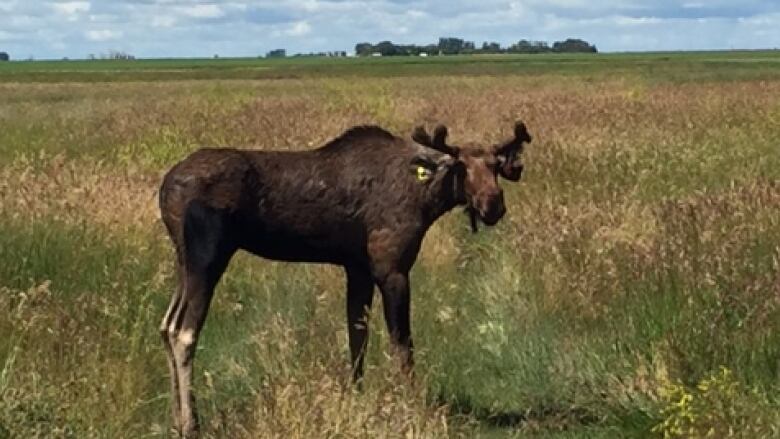Ontario's moose, bat populations in danger: provincial report
Report says moose affected by large number of threats, including disease, habitat loss, climate change


Ontario's Environmental Commissioner says she hopes people will pressure their MPPs over threats to a number of animal species in the province highlighted in a recent report.
The report, titled Small Steps Forward,highlights a rapid decline in the province's moose numbers due to what it calls a variety of threats, including climate change, inadequate hunting regulations, and habitat degradation.
-
Hunters criticize reduction in moose hunting near Thunder Bay, Ont.
-
'Chasing tags' leads Thunder Bay moose hunter to build portable camp
The report also states that eight Ontario species of amphibians are at-risk, while four of the province's bat species are endangered.
"We need the government to do its job," CommissionerDianne Saxe said.
"Which, in the first place, is to properly monitor what's happening to biodiversity in Ontario, and then to lead and coordinate a response."
Ontario's moose population has declined by 20 per cent over the past decade, Saxe said, with local numbers around Thunder Bay showing a 50 per cent drop.
That's due to a number of issues, according to her report, including disease and parasites, such as winter ticks and brainworm, hunting, predation by other animals and weather.
Saxe said that climate change will likely make the situation worse. "Moose ... are exquisitely well-adapted for cold [weather], and very poorly adapted for heat."
White-nose syndrome threatens to wipe out bat species in Ontario
Saxe's report also takes aim at the ongoing obliteration of the bat population in North America by a fungal disease called white-nose syndrome. Bats in the northwest are being affected.
Four of Ontario's eight native bat species have become endangered, according to the report, mainly due to the disease, but they're also threatened by wind turbines and "human persecution."
That's not good for people trying to enjoy the outdoors in northern Ontario, Saxe said.
That can have very serious consequences.- Dianne Saxe, on the large numbers of bats killed by white-nose syndrome
"Millions of bats have died and the pests that the bats used to eat are now flourishing," she said.
"So particularly in northern Ontario, people count on being outside so much ... if we do have a great increase in mosquitos and a great increase in the diseases that mosquitos carry, that can have very serious consequences."
Saxe said she wants to see the Ministry of Natural Resources and Forestry pay more attention to the management of the natural habitats of the species being threatened.












_(720p).jpg)


 OFFICIAL HD MUSIC VIDEO.jpg)
.jpg)



























































































